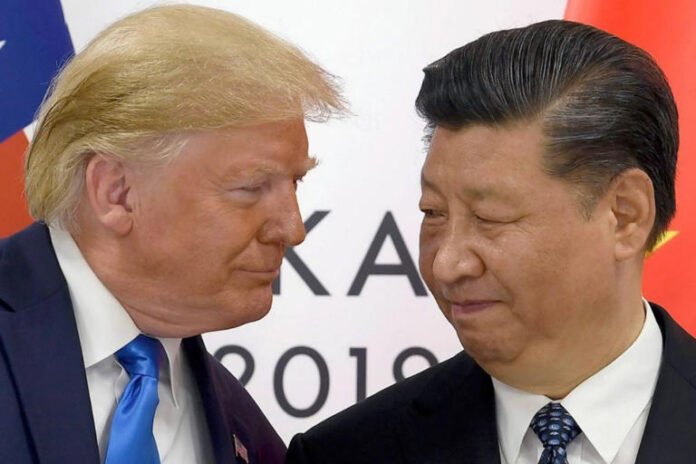The White House has made it clear that the onus is now on Beijing to resolve the ongoing diplomatic standoff. According to White House officials, it is not Washington that needs to make the next move but rather China, which must take responsibility for improving relations with the United States. This declaration signals a shift in the U.S. approach to its dealings with China, emphasizing the need for Beijing to de-escalate tensions and engage in constructive dialogue.
A Complex and Competitive Relationship
The U.S.-China relationship has been a complex mix of competition, cooperation, and rivalry for decades. The two countries are the world’s largest economies, and their interactions have a far-reaching impact on global trade, security, and political dynamics. In recent years, however, the relationship has become increasingly strained, with disputes over trade practices, intellectual property rights, cybersecurity, and military activities dominating the discourse.
The White House’s statement comes on the heels of escalating tensions over issues like Taiwan, human rights in Xinjiang, and the South China Sea, where both countries have sharply divergent interests. While the U.S. has been vocal in criticizing China’s policies on these matters, Beijing has retaliated with its own series of diplomatic moves, asserting its territorial and economic claims.
Beijing’s Role in the Stalemate
White House officials have stressed that China’s actions, particularly regarding military provocations and its assertive stance in international organizations, have contributed to the current deadlock. In recent months, the Chinese government has taken a hardline approach, especially in its dealings with Taiwan, which it views as a breakaway province. Additionally, Beijing has been accused of further exacerbating tensions by refusing to engage in meaningful talks on issues like climate change and global health, areas where both countries’ cooperation is crucial for global stability.
The White House, however, has been clear in its messaging: Washington is open to engaging with China on a variety of issues, but it is Beijing that must make the first move. The ball, according to the White House, is now firmly in China’s court. This shift in tone is particularly notable as it signals a change in the U.S. strategy, which has traditionally involved active outreach and engagement with China to foster bilateral cooperation.
The Stakes for Global Stability
The geopolitical stakes are high. The U.S. and China are central players in addressing numerous global challenges, from the ongoing COVID-19 pandemic to climate change, nuclear non-proliferation, and regional security issues. The Biden administration has made it clear that it seeks competition with China, but not conflict, and that it remains committed to working with Beijing in areas of mutual interest.
However, the White House’s statement reflects growing frustration with China’s reluctance to engage on these critical global issues. The U.S. has also expressed concerns about China’s increasing influence in the Indo-Pacific region and its growing military presence in the South China Sea, both of which have raised alarms in Washington and among U.S. allies in the region.
The Response from China
China, for its part, has consistently rejected outside interference in what it views as its internal affairs, particularly with regard to Taiwan and its human rights record. Beijing has been vocal in accusing the U.S. of attempting to encircle China with alliances and military bases, particularly in the Asia-Pacific region. The Chinese government has also used diplomatic and economic pressure to push back against U.S. sanctions and trade policies, which have been a significant point of contention between the two powers.
Despite these ongoing tensions, there are signs that both sides understand the need for some form of dialogue. As global challenges grow more complex, there is an increasing recognition that cooperation between the U.S. and China is essential. Both countries have indicated a willingness to discuss specific issues, such as climate change, global trade norms, and public health.
Looking Ahead
The question now is whether Beijing will heed the White House’s call for a more proactive role in managing the bilateral relationship. For the U.S., it is clear that it will not back down from its stance on key issues, such as Taiwan and human rights, but it is also signaling an openness to talks—provided China steps up and demonstrates a willingness to engage in good faith.
As the global power dynamics continue to evolve, the U.S.-China relationship will undoubtedly remain a key area of focus for both governments. The ball, for now, remains in China’s court. The world will be watching closely to see whether Beijing decides to change course and engage with Washington on the difficult issues that lie ahead.
In the coming months, the actions and responses from both countries will shape the future trajectory of one of the most critical diplomatic relationships in the world today.

